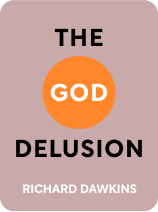

This article is an excerpt from the Shortform book guide to "The God Delusion" by Richard Dawkins. Shortform has the world's best summaries and analyses of books you should be reading.
Like this article? Sign up for a free trial here .
What is the arguments against creationism? What evidence shows that creationism is false?
There are numerous arguments against creationism. In addition to well-documented scientific evidence in favor of evolution, Richard Dawkins also suggests that we evaluate the creationist argument on its own weaknesses.
Keep reading to find out more about arguments against creationism.
Arguments Against Creationism
Most arguments for God’s existence postulate a supreme designer, similar to the figure we discussed in the previous chapter. Proponents of this belief are called creationists. But there are many arguments against creationism.
Creationists believe that the universe we observe is the handiwork of an intelligent designer who consciously and knowingly created everything, from the movement of galaxies throughout the universe to the orbit of electrons within an atom. For creationists, an intelligent God is the ultimate and simple explanation for everything.
The medieval Christian theologian Thomas Aquinas, writing in the 13th century, argued that all things must have a primary cause and that the mere existence of physical things proved the existence of God. He reasoned that there must have been a time before physical things existed. But that meant that a non-physical force must have, at some point, brought the physical world into existence. For Aquinas, that force could only have been God.
But this is where the “simple” theistic position begins to fall apart. If all things can be said to have their root cause in an intelligent God, then one must raise the obvious question—what is the root cause of God? Who designed the designer?
This is the fundamental flaw at the heart of most theistic arguments. You can postulate an infinite regression of the physical universe that terminates with God. But if you can’t explain the existence of God in the first place, the argument collapses, and it’s one of the main arguments against creationism.
Natural Selection and the Improbability of God
Based upon the serious flaws in these arguments, we can see that the God Hypothesis is flimsy at best. But people of faith persist in their belief nevertheless. One common argument that they often put forward is the argument from complexity or improbability. But this also doesn’t hold up as one of the arguments against creationism.
They start by observing the intricate details of the natural universe, from the movement of the planets within the solar system to the workings of cells within the human body. Given the sheer complexity and detail of the observable world, they conclude that an intelligent designer is the only possible explanation. What are the odds that all we see around us is the product of chance? According to this view, the world being the result of simple luck is as likely as an entire Boeing 747 being assembled from a single gust of wind.
But the problem with this argument is that it presents a false choice. The choice is not between design and luck. It’s between design and natural selection. And natural selection offers a far more logical and likely explanation for why the world is the way it is.
Natural Selection: Creating Complexity From Simplicity
Before Charles Darwin’s theory of natural selection, intelligent design seemed to offer a much stronger explanation for the complexity we observe in the natural world. It made sense that our world was the product of design by an unfathomably complex maker.
An analogy could be made to a complex human stonemason making a relatively simple stone wall. But it had never been shown to work in the other direction—no stone wall had ever made a stonemason. In other words, it was impossible to imagine something complex arising from something simple.
But Darwin and natural selection solved this great mystery and dealt a blow to the creationist account of the universe from which it has never been able to recover. Natural selection states that certain small genetic mutations in individual living organisms give them a slightly greater chance of survival than their peers. Because those organisms best suited for survival are more likely to survive, they have a greater likelihood of passing on their own genes to their offspring. Over time, traits that are advantageous for survival get passed on; those that aren’t die out.
Environmental change over the course of billions of years complements the evolutionary process, as plants and animals evolve through natural selection to become better suited to their environment. From simple, single-celled organisms arise primates like human beings capable of abstract and concrete thought. And the process of evolution is ongoing. Millions of years from now, Earth’s organisms—including humans—will look radically different from how they do today.
The arguments against creationism are backed by evidence of natural selection, and the creationist arguments are weak.

———End of Preview———
Like what you just read? Read the rest of the world's best book summary and analysis of Richard Dawkins's "The God Delusion" at Shortform .
Here's what you'll find in our full The God Delusion summary :
- Why Dawkins thinks religion has exerted a harmful influence on human society
- How Dawkins concludes that the existence of God is unlikely
- The 3 arguments that challenge the existence of God






